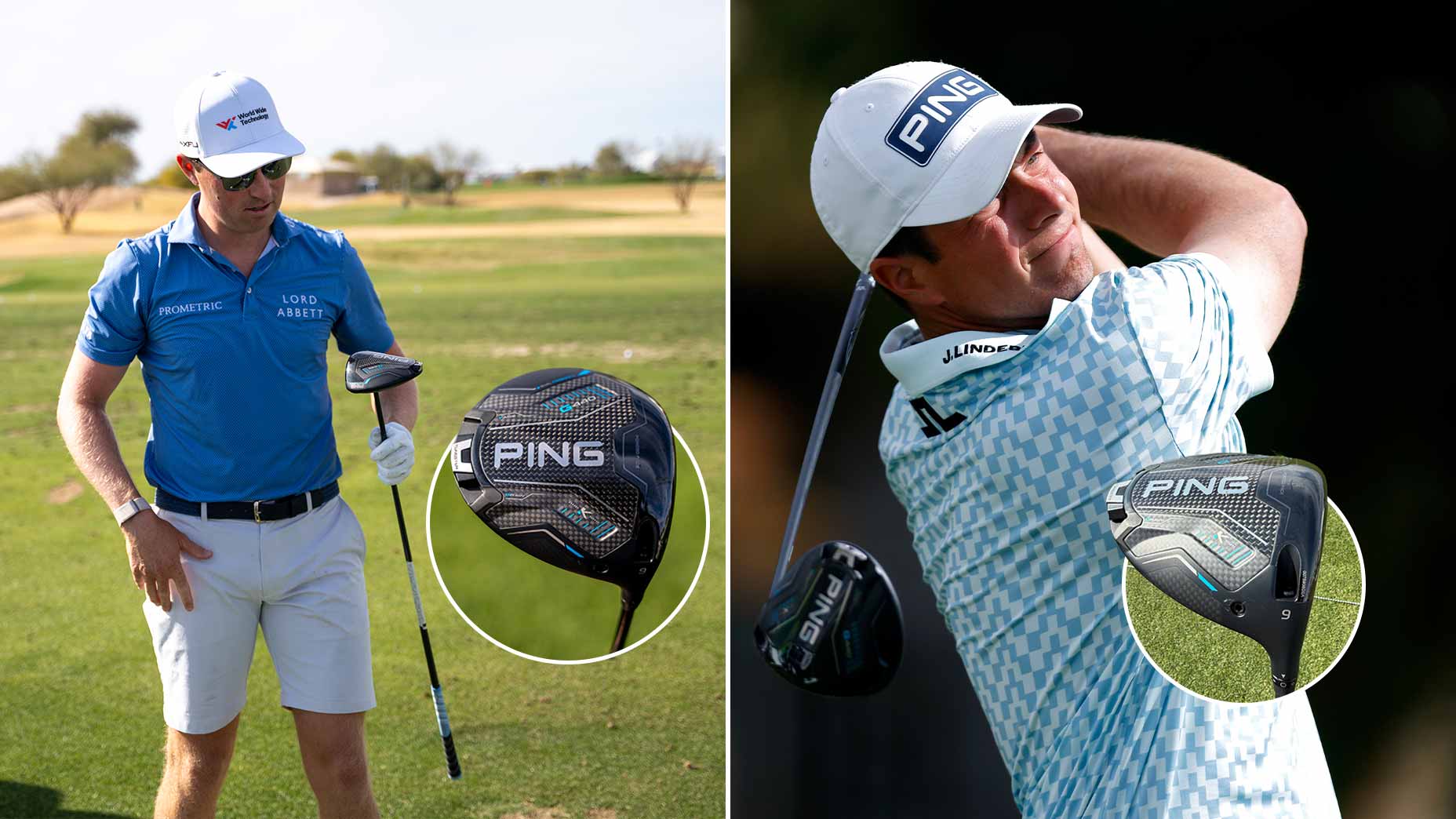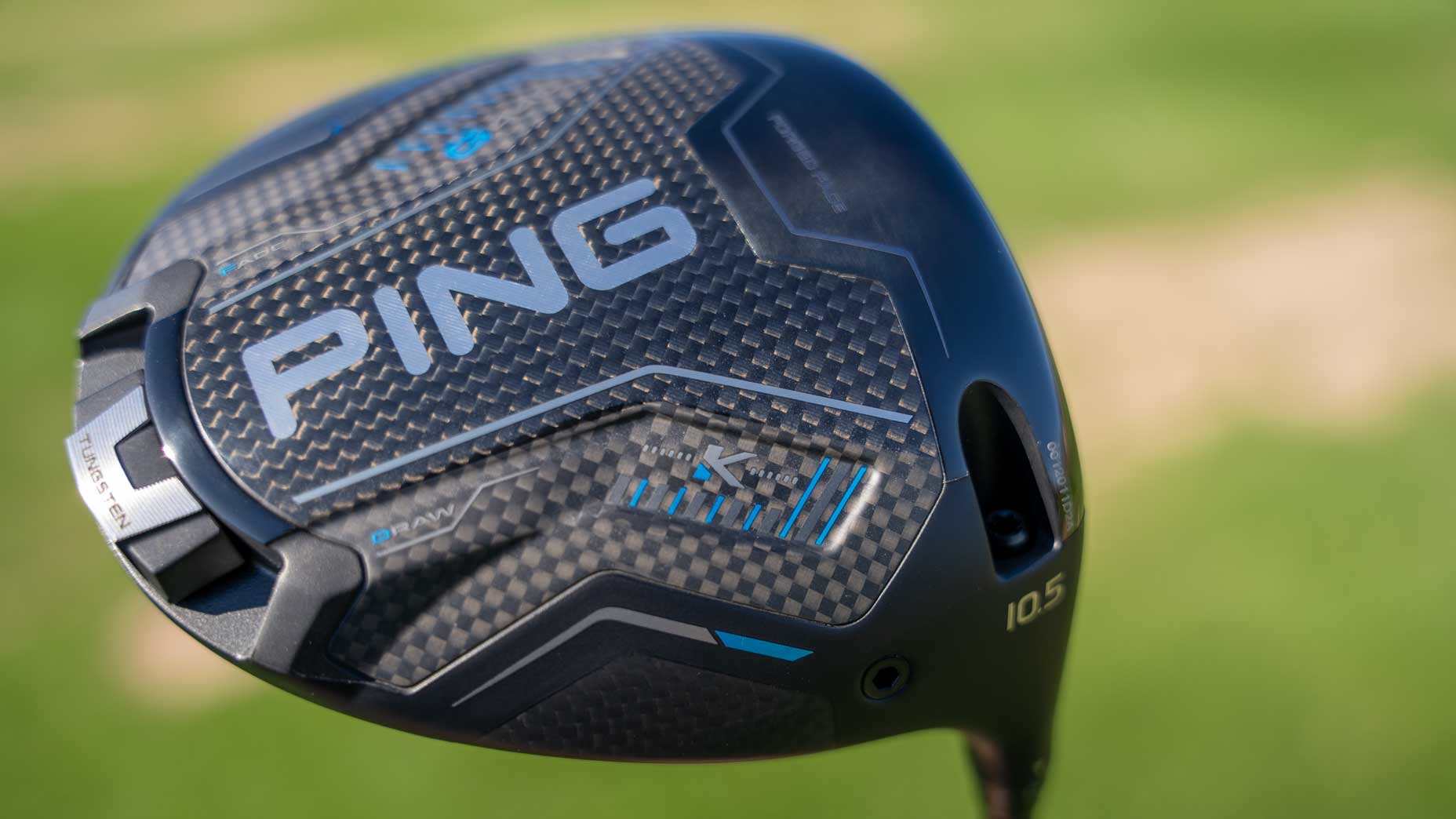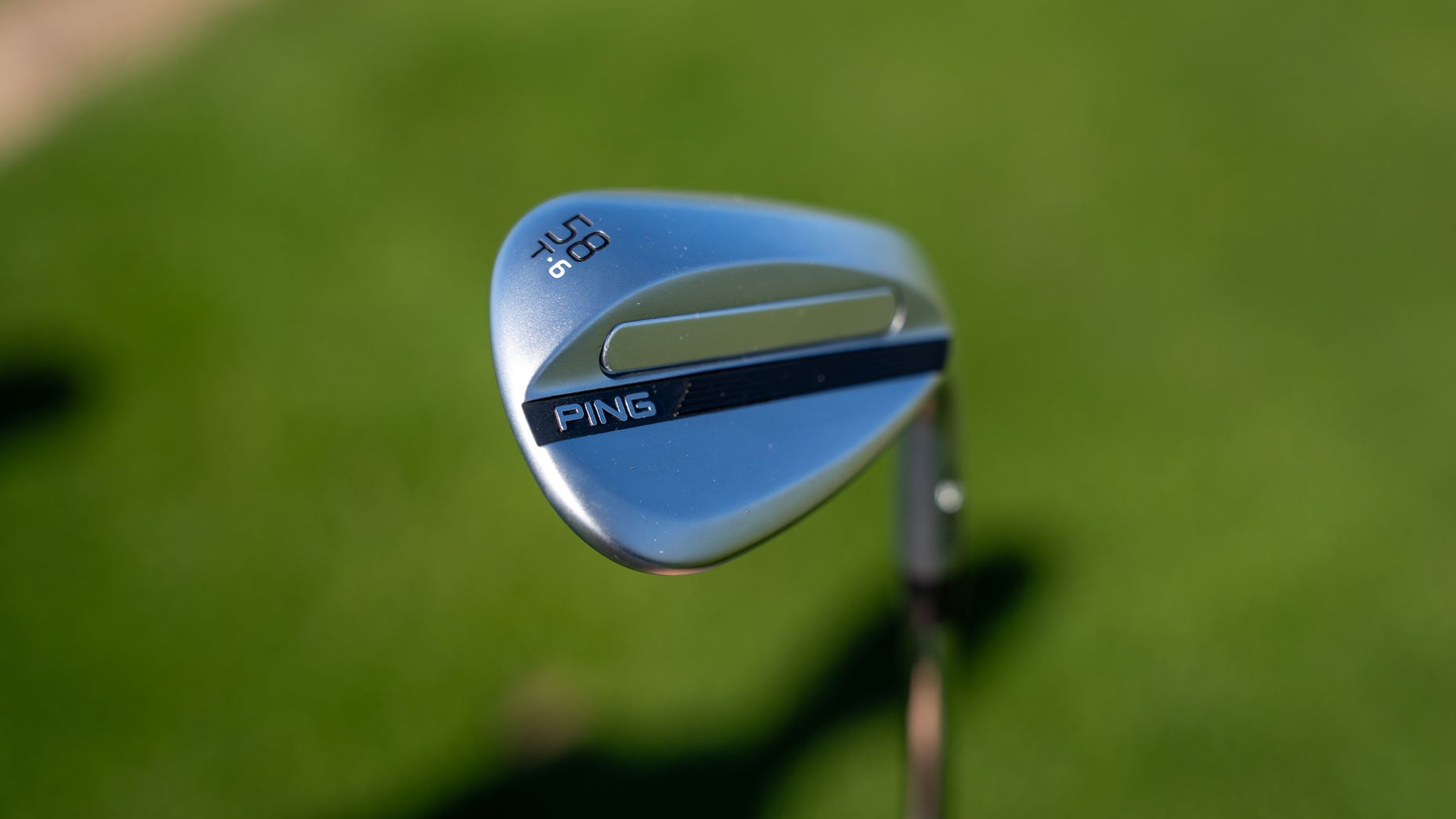Welcome to GOLF.com’s ClubTest Proving Ground, where Managing Equipment Editor Jonathan Wall and Senior Equipment Editor Ryan Barath — along with a cast of GOLF writers and editors — put the latest designs and groundbreaking technology in the equipment space to the test on the range and the course. For 2023 ClubTest, we paired members of our staff with the latest gear from manufacturers to give you, the potential club buyer, “a real feel.”
Ping’s G430 line will be available for preorder on Jan. 10, and in retail stores on Jan. 26. Pick up all your new gear at Fairway Jockey.
MORE FROM OUR 2023 CLUBTEST COVERAGE: The tech behind Ping’s G430 drivers | The tech behind Ping’s G430 irons | WATCH: Ping G430 robot testing insights | WATCH: Inside a Ping G430 fitting
***
TESTER: Nick Piastowski (Senior Editor) | 14 HCP
GOAL: Find better distance/long-iron consistency and put together a real wedge setup for every short-game situation.
THE LOWDOWN: Let’s frame this in just one hole. We won’t name the course because it’s a me problem, not them.
It’s a 420-yard par-4. A dogleg right, at a 75-or-so degree angle, starts at about 185 yards away from the tee. There is a patch of trees maybe 230 yards out. Unless you can cut the right corner, the play is a nice 200-yard ball, followed by a good poke to the green.
And I can mark myself down for a double before even putting a peg in the ground.
Yeah, yeah, mental game, belief in yourself and all that. But despite all of my well-wishes, I don’t have the shot in my bag to drop in a 200-yarder consistently. But let’s say that I get one out there. I’m pumped. But then I have to follow it up with another poke that’s foreign to me. But let’s say miracles happen. I’m in play, and for this story’s sake, let’s put ourselves about 50 yards out. Here, I bring out my wedge. My one wedge, and I simply adjust my swing with it based on the distance.
So yeah, I take my 6 and move on. It’s a tough hole, and I get it. Now, all of this is to say I’m not a bad player. (See, I do have confidence in my game!) I’m about a 14 handicap, and I’ve broken 80 a handful of times, though all of that can also tell you I’m inconsistent, and I am, throughout the bag. Here’s a rundown: I’m straight-ish off the tee, with about a 220-yard carry, but a nasty hook is my miss; I play a 7-wood that I can get out to about 200 yards, but is prone to being topped; irons lower than a 6 are often hit thin; I’m solid around the green, but yeah, just a wedge.
In a sentence, I guess I’m a scrambler, a ham-and-egger.
But — TV voice here — maybe tech can help.
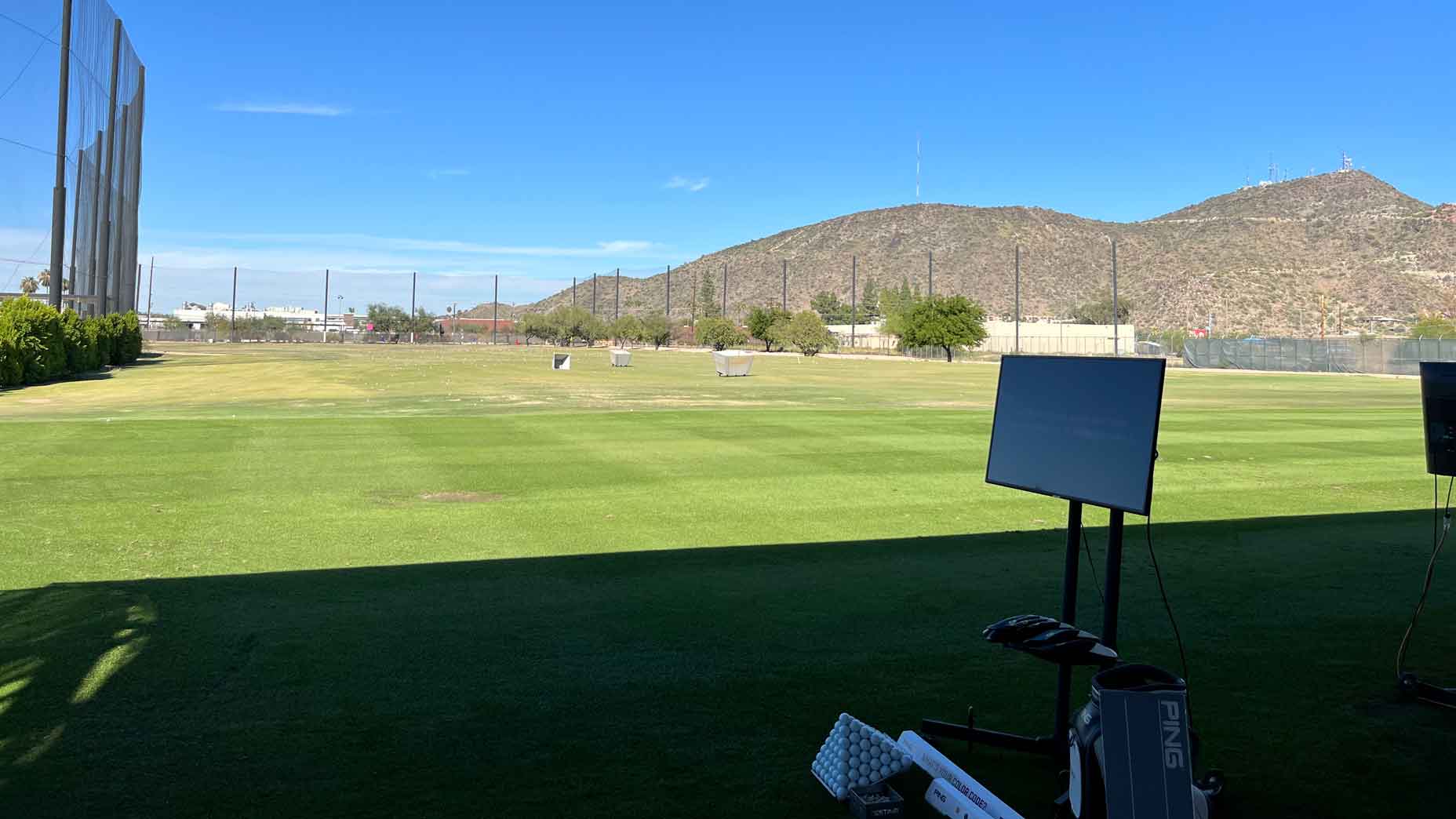
FITTING PROCESS: For my fitting, I visited Ping headquarters in Phoenix, where master club-fitter James Lee III and I worked on the range for a good three hours. (Poor James, though he did have the patience of a saint, unlike a few of his fellow New York sports fans). To start, we went over my three biggest issues — better consistency with longer irons, better variation with wedges and better distance. From there, I hit a few higher irons; James had a nice thought here, which you can certainly carry over to the range — get warmed up with the clubs you hit the best. Then we went through the bag, ending with the driver, and every possible measurement short of my green jacket size was taken. Anything I wasn’t clear about during the fitting, I asked about, and I think you would be wise to do the same — get the most out of the experience and make sure you relate what you need and what you’re feeling.
We also took a quick spin through the club factory — big, efficient, clean, with a large amount of microwaves, which are sneaky convenient — I poked my head in the famed Gold Putter Vault (Ping commemorates its staffers’ victories this way), and I went through a ball-fitting process (the determination was I needed more spin). Of course, all of this is a perk of my job, and an on-site fitting may not be for everybody. But if you have the means, the experience was educational, and folks were understandable — players like Viktor Hovland hit here, and I am not a player like Viktor Hovland.
My fitted gear
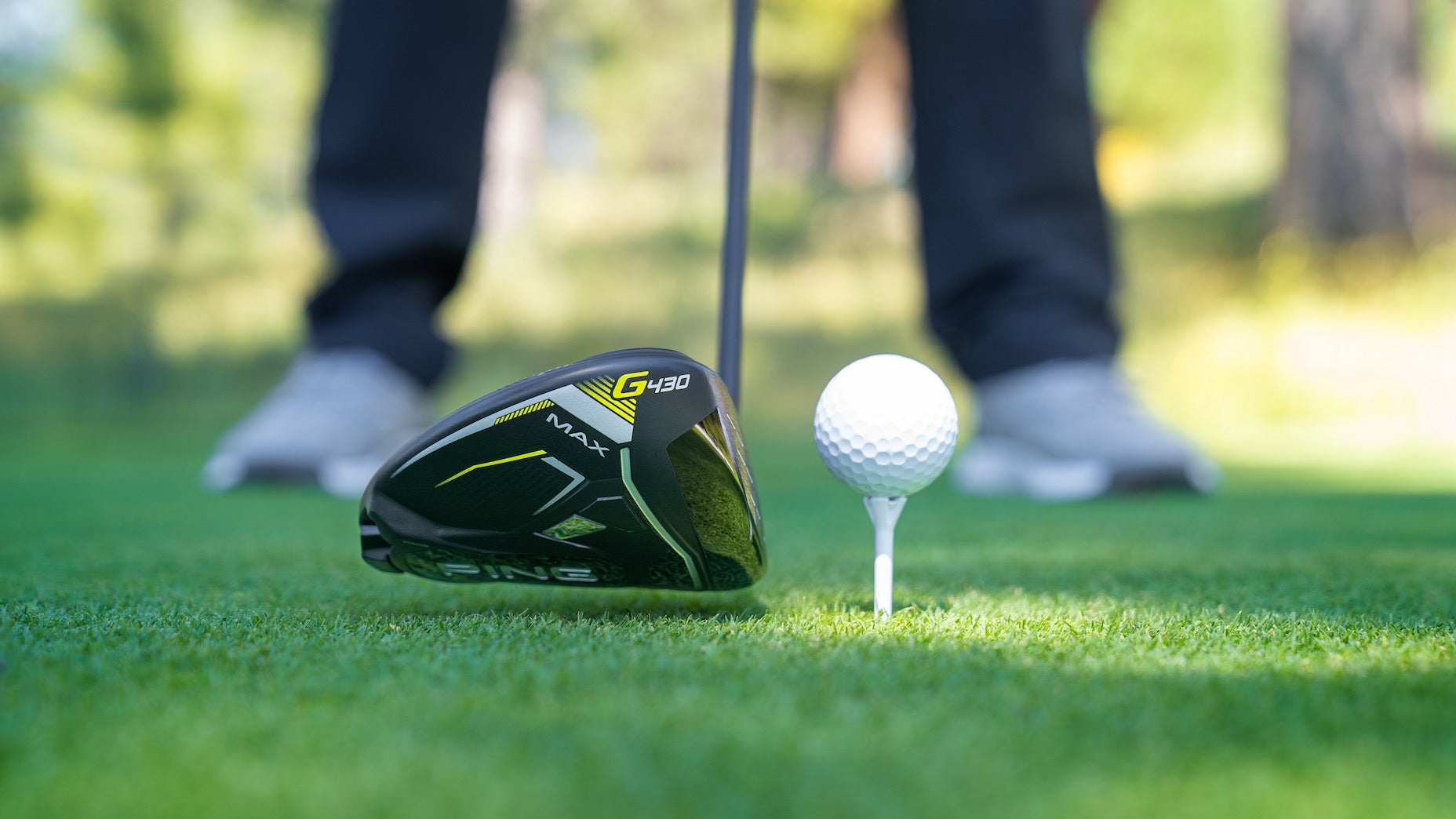
DRIVER: I was fit for the G430 driver, with a 10.5-degree loft and an Alta CB 55 R shaft.
So how’d you hit ’em: The real bottom line here is this: James and the Ping gang were focused on getting this club right for me. There’s some backstory.
I had been fit for clubs before, about a year and a half ago, and I ran through most every new make and model. But old faithful — my 15-year-old Cobra Speed LD — carried the day. Not that I didn’t mind — I hit it well, though with just about a 225-yard total distance — but I guess I was surprised. The engineers just could not figure me out. Insert your jokes here.
“We’re going to beat it,” one Ping staffer said.
“If we do nothing else today, we’re going to get you a better driver,” another said.
“I’m going to beat it,” James said.
They did. With some notes.
We’ll get right to what you’re wondering, and the G430 added 15-20 yards at the Ping range, and that carried through to two sessions on another range, and two live rounds. It was easy power, too. This isn’t going to be the most technical-sounding description, but there was a ‘slap’ sensation on contact, and the ball ‘jumped.’ To be honest, though, I appreciated more what the G430 did on misses. When I hooked or sliced, I was still in play. My best example is this: On the same course I noted at the start, I pushed a drive right, it felt right — and I was maybe at most 10 yards off the fairway. I like that.
But there were control concerns. Over the four outings, I was spraying it some, including a few right, which I often don’t do. Still, there was serious thump here — in my last live round, I was near equal to a friend who consistently outhits me by 25 yards — and the misses were tolerable.
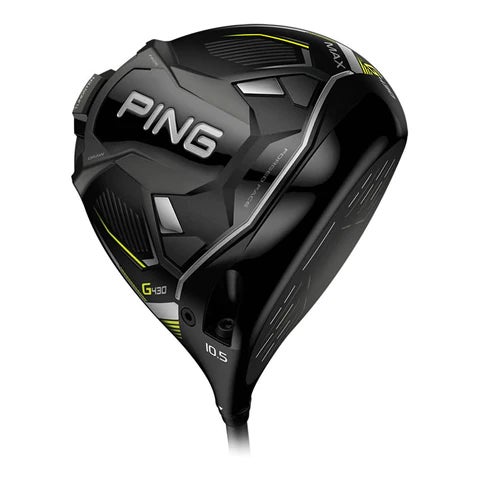
PING G430 Max driver
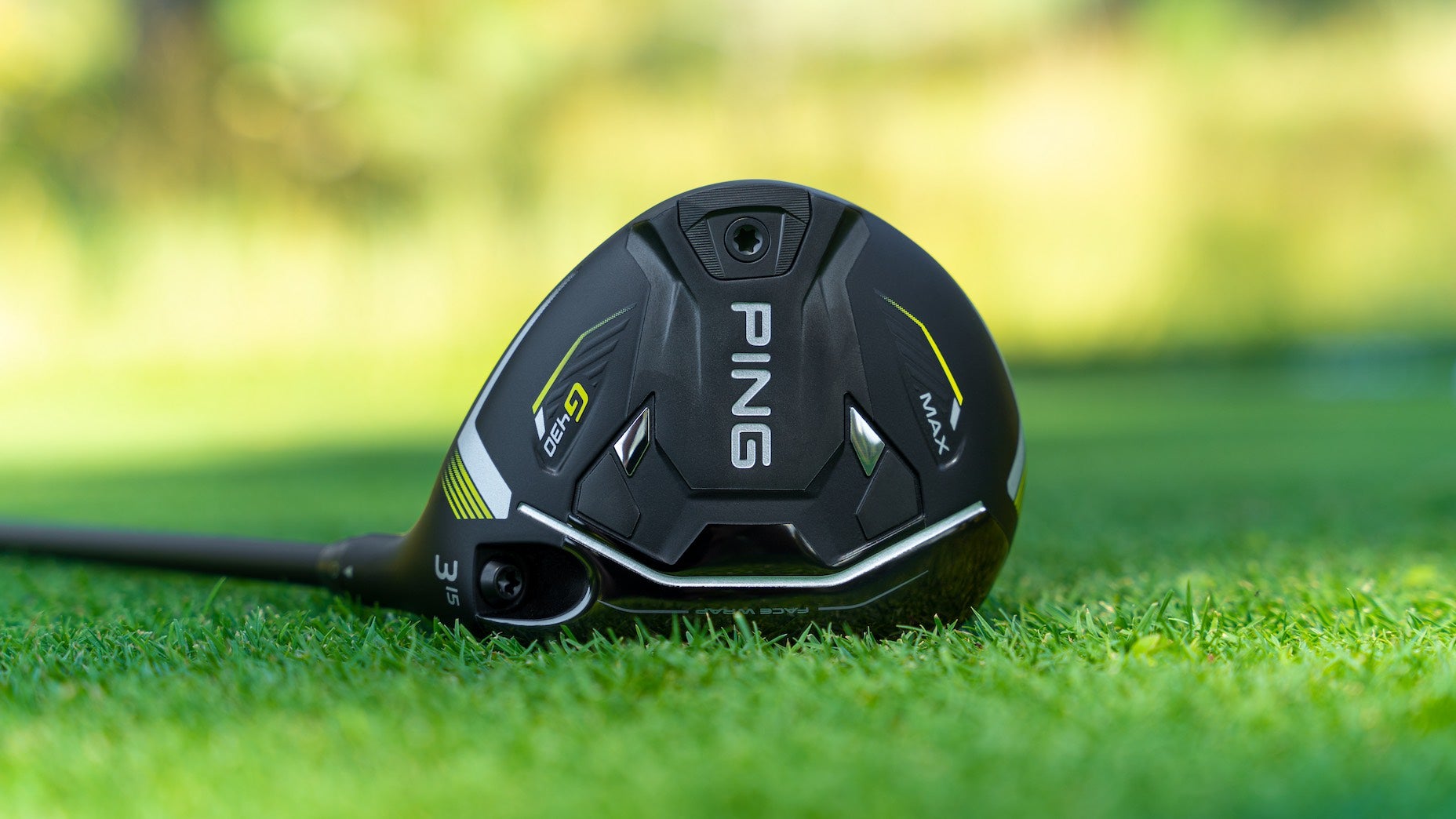
FAIRWAY WOODS: I was fit for the G430 3-wood, with a 15-degree loft and an Alta CB 65 R shaft; and a G430 7-wood, with a 21-degree loft and an Alta CB 65 R shaft.
So how’d you hit ’em: The 3-wood is the best thing I put in my bag all year. I have a story to go with it, but I’m going to wait till the end, though if you need a hint, go back to the opening paragraphs and the second shot on the “hole.”
As for the 7-wood, I had been playing Ping’s G425 7-wood, with a 20.5-degree loft, and I noticed some better feel and contact, but the clubs were similar to me. I expected that. Both go about 200 yards.
One quick word here on bag setup, and maybe this will help you. Check your club gapping. James saw this immediately. In my gamer bag, I played driver, 7-wood, 4-iron through wedge, and a 3-hybrid that I should refuse to use but can’t quit (more on that in a sec) — and my game needed some sort of extra fairway wood. My thought was that I would control only the 7 well, and any distance added with other fairway woods would be negated by inaccuracy.
Again, please wait for the ending.
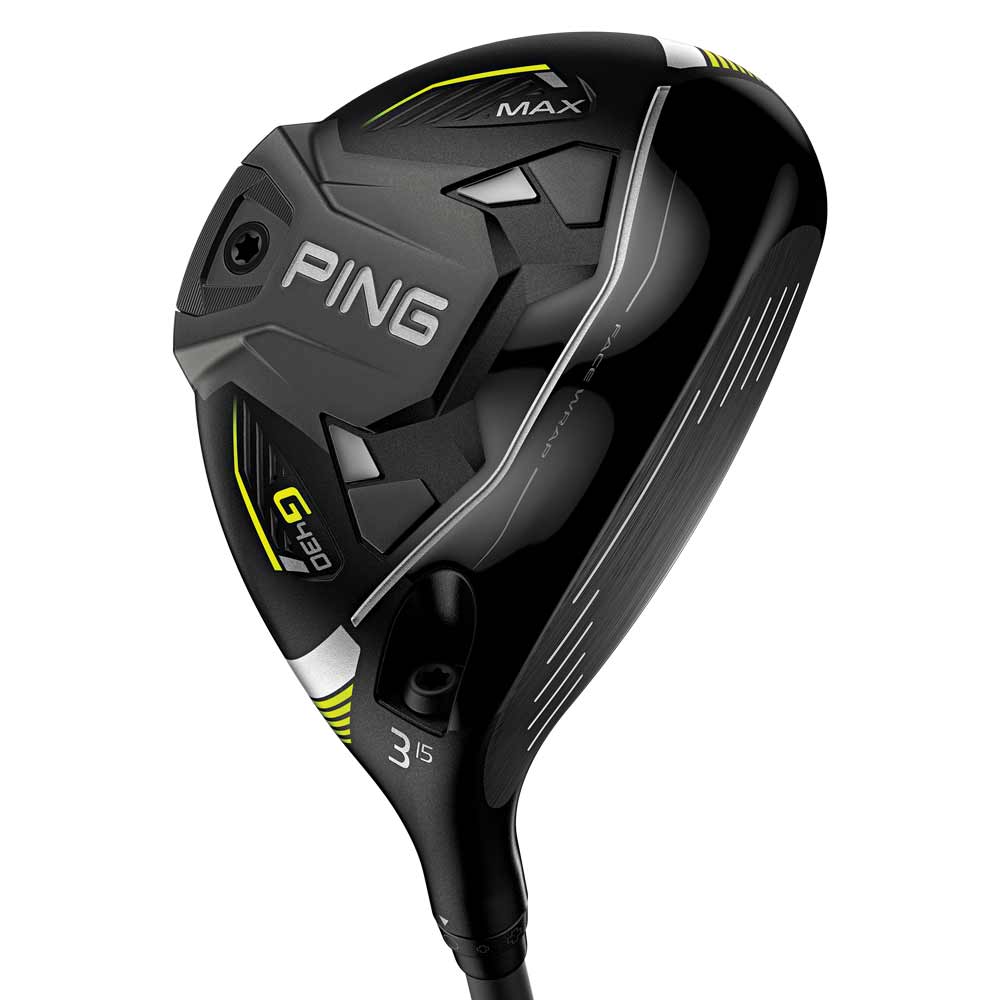
PING G430 Max fairway wood

HYBRIDS: I was fit for the G430 4-hybrid, with a 22-degree loft and an Alta CB 70 R shaft; and the G430 5-hybrid, with a 26-degree loft and an Alta CB 55 R shaft.
So how’d you hit ’em: The 5-hybrid is the second-best thing I put in my bag all year. Guys, I can hit a 5-iron! But again, I’ll ask that you wait till the end for the full story, though, by now, you have probably pieced it together.
As for the 4-hybrid, this replaces the 3-hybrid, and goodness, I could not hit that thing. Top, top, top. But every once in a while, I caught it right, and it’s here where the casino idea came to mind for me — have them win just enough to keep them coming back for more. But this is golf, and the payoff should be more consistent than a slot machine.
Anyway, the 4-hybrid had a ‘smooth’ feel to me off the face. A second before writing this, I compared the 4- and 3-hybrids, and just the look of the 4 gives you more confidence — it’s a bigger face than I was expecting. I’ll put the distance at about 190, though I did have some control issues.
So why two hybrids? Maybe this is another tip for the player, who, like me, can’t play longer irons well — try the hybrid. This was James’ idea, and it worked well.
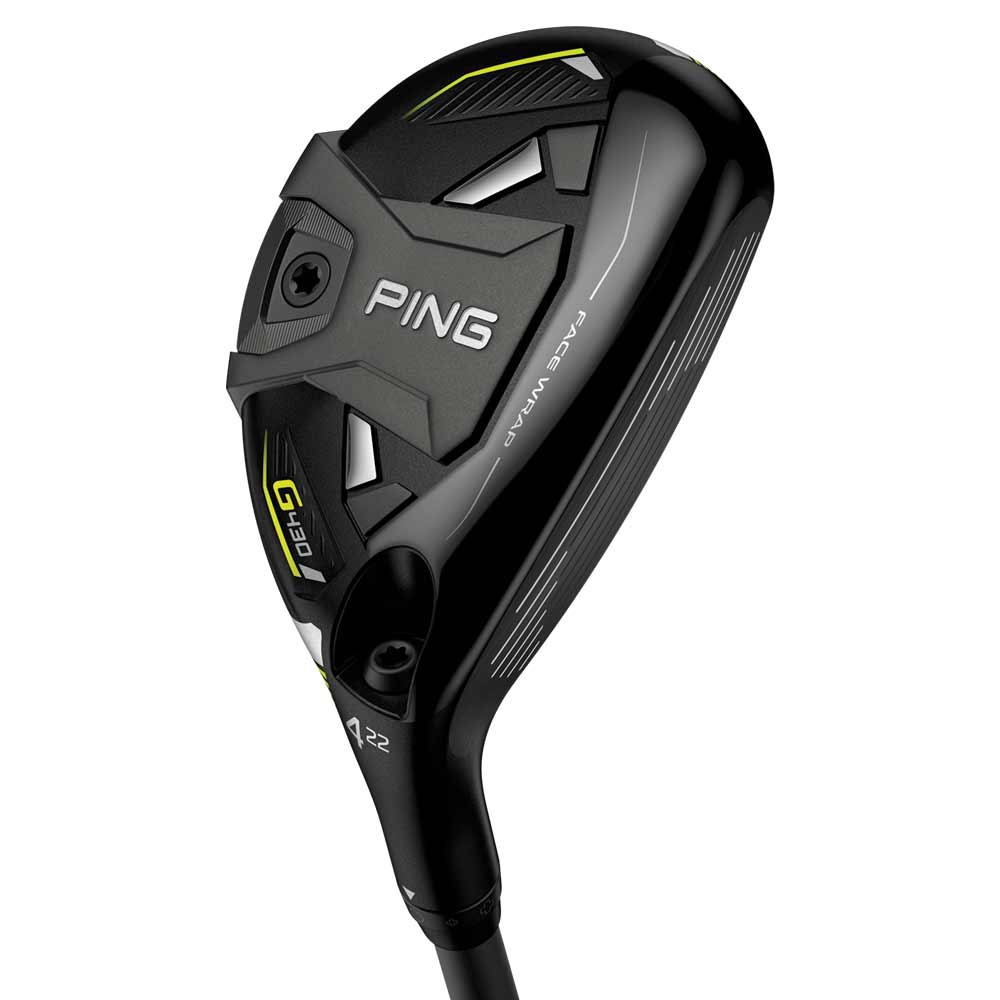
PING G430 hybrid

IRONS: I was fit for the G430 6-iron through wedge, each with a Nippon N.S. Pro Modus 3 shaft.
So how’d you hit ’em: They got through the rough better than most any iron I’ve hit. We like that.
To be transparent, I had been fit for a set of Srixon, graphite-shafted irons just about a year and a half ago, and I like them. The Pings, notably, had a bit lighter feel despite an iron shaft, and their eye-level-to-turf look appeared bigger — and mentally more forgiving — though holding them both up close, they were the same. As for distance, in the four times out, I was hitting my averages, if not slightly above (wedge: 100-115; 9-iron: 115-135; 8-iron: 135-150; 7-iron: 150-160; 6-iron: 160-170), though I was tending to push these right some.
To be transparent again, I had always wanted a set of Ping Zings growing up. I loved the squared-faced feel and bought a knock-off set, and when I showed James the 9-iron in that set, he immediately noticed the similarity.
But we’ll end with a word on the Ping 9-iron.
On the hole after the “hole,” a 130-yard par-3, I stuck a draw to 4 feet and birdied. I may or may not have whispered to myself, “Hot damn.”
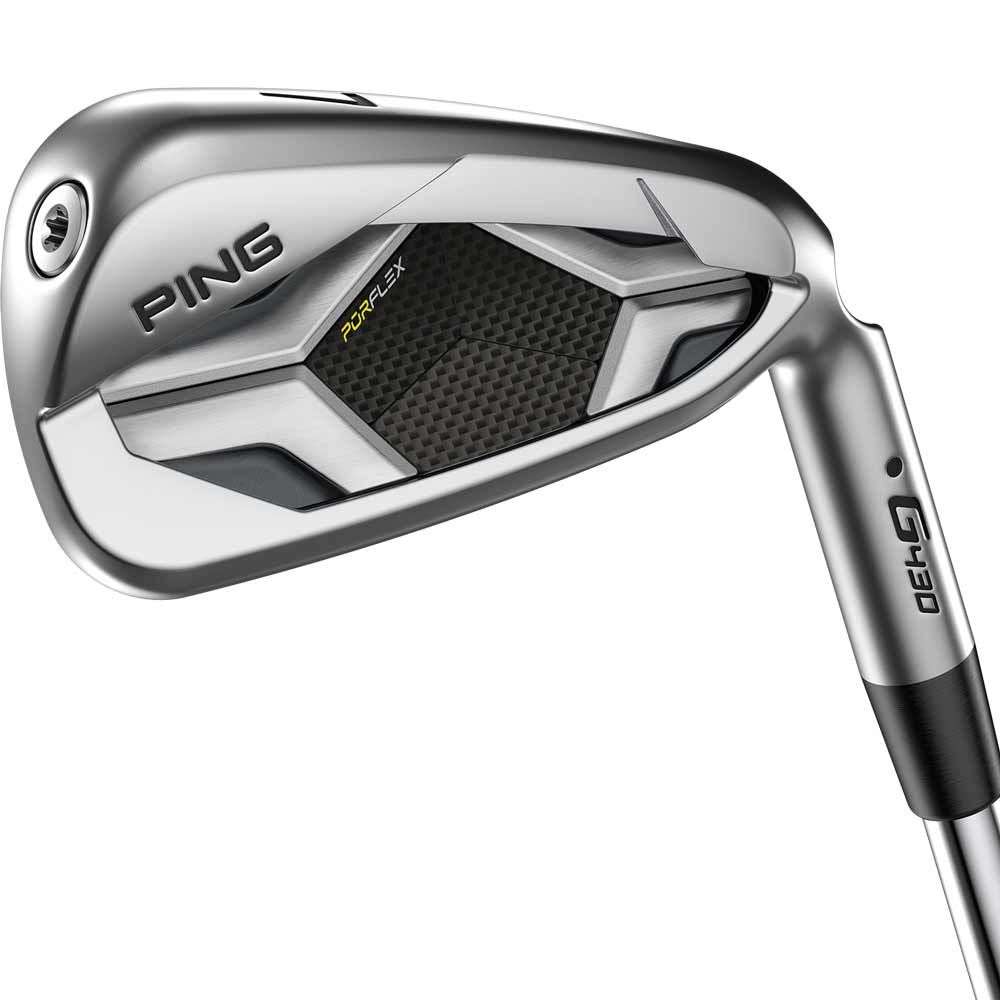
PING G430 iron
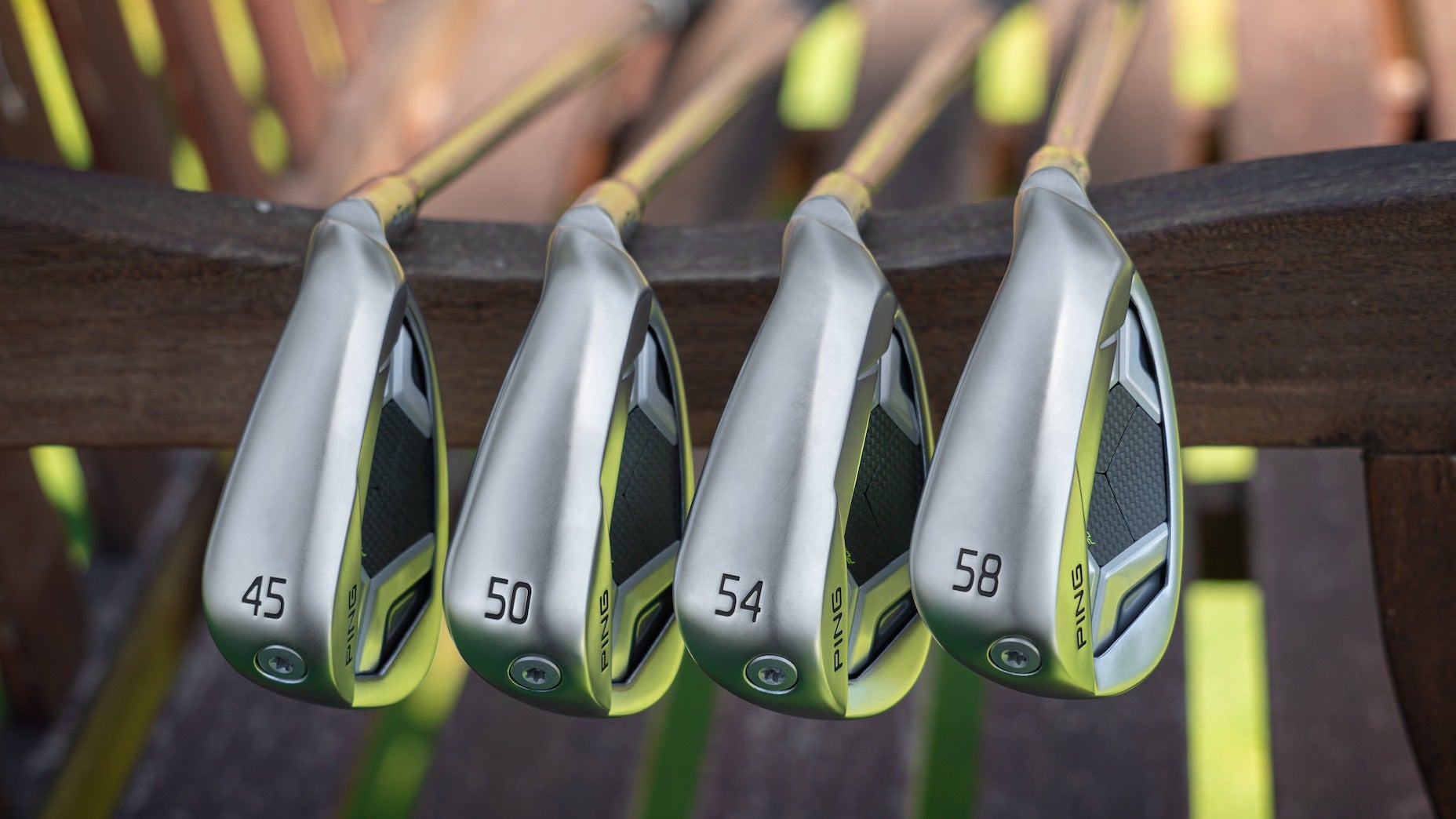
WEDGES: I was fit for the G430 45-, 50-, 54- and 58-degree wedges, each with a Nippon N.S. Pro Modus 3 shaft.
So how’d you hit ’em: These are the third-best things I put in my bag all year. Of course, why didn’t I do this earlier is an outstanding question.
I have some rationalization, though. My one wedge — the wedge — is maybe the strength of my game. I can control shots well, for my handicap, from 100 yards and closer, despite the fact that I was having to adjust my swing based on various yardages. As for flop shots, I really had to twist my body and turn my wedge — the wedge — to drop one in.
But yeah, clubs can do this work. Those are James’ words, not mine, though.
Like the irons, the wedges cut through rough very well. And again, we like that. They’ve taken some getting used to, though I believe that’s due to inexperience. These are weapons.
The Results
Back to our hole from the beginning. It’s a 420-yard par-4. A dogleg right, at a 75-or-so degree angle, starts at about 185 yards away from the tee. There is a patch of trees maybe 230 yards out. Unless you can cut the right corner, the play is a nice 200-yard ball, followed by a good poke to the green.
Here’s what we did a couple of weeks ago. A drawing 5-hybrid that finished 190 yards out. A 3-wood that came up about 5 yards short of the green. Two putts.
Then, as I mentioned above, I birdied the next hole with the 9-iron. And, as I mentioned above, on the next hole, I pushed a drive right, it felt right, and I was maybe at most 10 yards off the fairway. All good.
There were drawbacks to the latest from Ping — as noted, the driver was tough to control at times, and the irons, too. But the distance gains were noticeable. The forgiveness and playability were outstanding. I even enjoyed the look — the driver head looks imposing, the iron backs are appealingly dug in a bit.
But let’s end things with a number. My score on the “hole.”
Four (not six). Par (not double).



